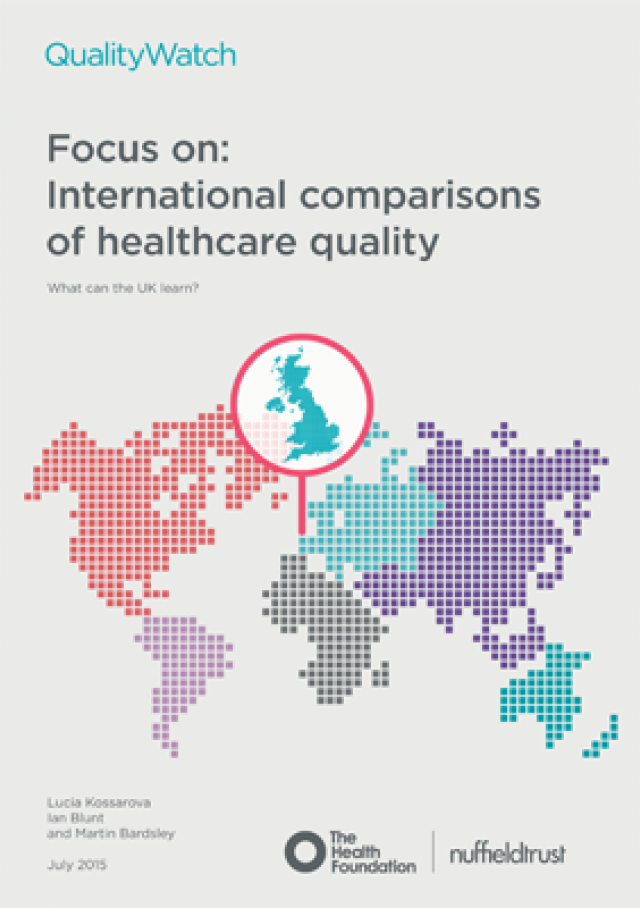Focus on: International comparisons of healthcare quality What can the UK learn?
July 2015

Key points
- In this research, we explore what the available data can tell us about quality of care in the UK between 2000 and 2013 in comparison with 14 broadly similar countries.
- The UK does not consistently overperform or underperform when compared with the pool of 14 other countries.
- Absolute and relative trends – that is, whether the UK is improving or deteriorating and how it is performing in relation to other countries – are mixed.
- The UK is stable or improving on almost all the indicators (25 out of 27) and we would hope that the UK can at least maintain but ideally increase the speed of improvement.
- There is no indicator on which the UK performs worse than other countries and is deteriorating at the same time.
- The UK performs worse than most countries on 14 out of 27 indicators and performance is deteriorating on two indicators.
Comparing healthcare quality across different countries is inherently difficult due to the challenges involved in collecting high quality and comparable data. However, these types of analysis can offer a useful perspective on health system performance over time, and help inform our understanding of how to improve quality of care at a national level.
In this research, we explore what the available data can tell us about quality of care in the UK between 2000 and 2013 in comparison with 14 broadly similar countries: Australia, Belgium, Canada, France, Germany, Greece, Ireland, Italy, Netherlands, New Zealand, Portugal, Spain, Sweden and United States. We compare performance against 27 of the Organization for Economic Cooperation and Development’s Health Care Quality Indicators, which offer insights into quality of care in four sectors – primary care, acute care, cancer care and mental health. We also discuss indicators of quality in other key quality areas – including safety and patient experience – where data is not yet ready for international comparison over time.
The report examines both where the UK stands in relation to other countries and where it is heading, highlighting areas in which there has been progress, as well as those where additional effort is needed. We aim to explore both what international comparisons can tell us about the quality of healthcare in the UK, and the value of such comparisons as a means of assessing quality.
Although many more quality of care indicators are in use in the UK, the 27 indicators discussed in this research represent the most robust data currently available as a basis for international comparison across several countries. As such, they only touch upon quality of care in healthcare systems where validated comparative indicators are available. Findings should therefore be read not as a definitive judgement on the quality of care in the UK, but as an additional lens through which to better understand national performance over time.
This report serves as baseline evidence for further in-depth work and cross-country learning to better understand the observed trends. In time, we hope such work will lead to policies and actions that succeed in closing the gap between the UK and the world’s best performers.
Downloads
Work with us
We look for talented and passionate individuals as everyone at the Health Foundation has an important role to play.
View current vacanciesThe Q community
Q is an initiative connecting people with improvement expertise across the UK.
Find out more

